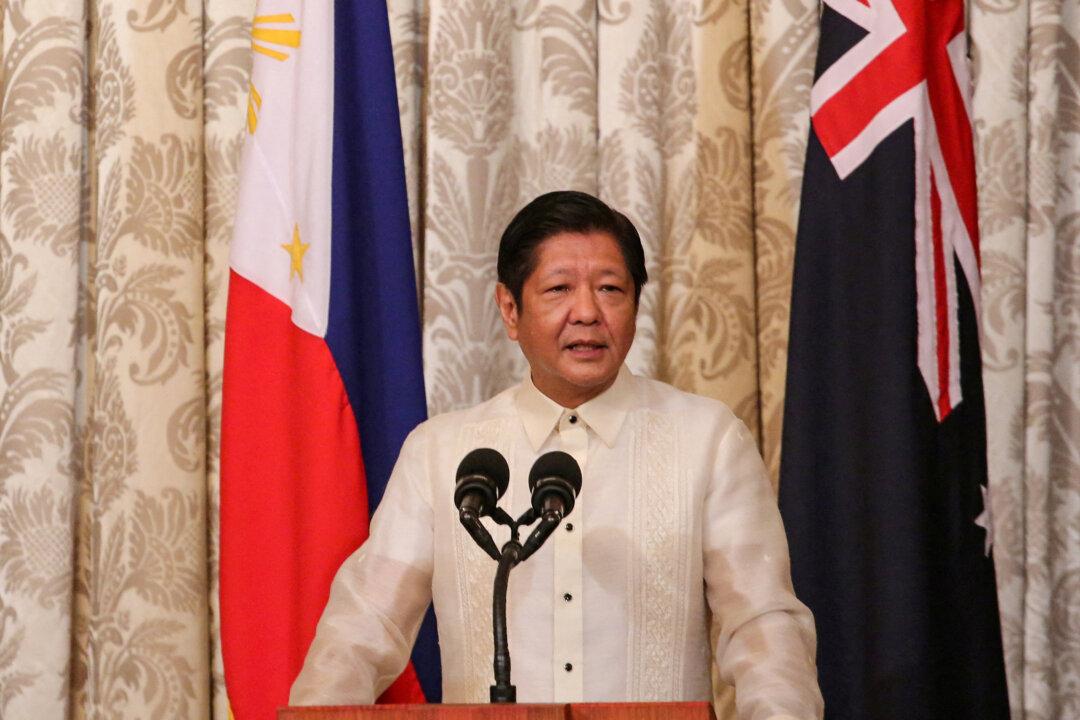Tensions in the contested South China Sea are becoming “more dire” as Beijing expands its reclamation closer to Philippine water, Philippine President Ferdinand Marcos Jr. said on Monday.
While speaking to reporters in Honolulu on Nov. 20, Mr. Marcos said China has been increasing its presence in atolls and shoals that are closer to the Philippine coast, with the nearest atoll being about 111 kilometers away.





